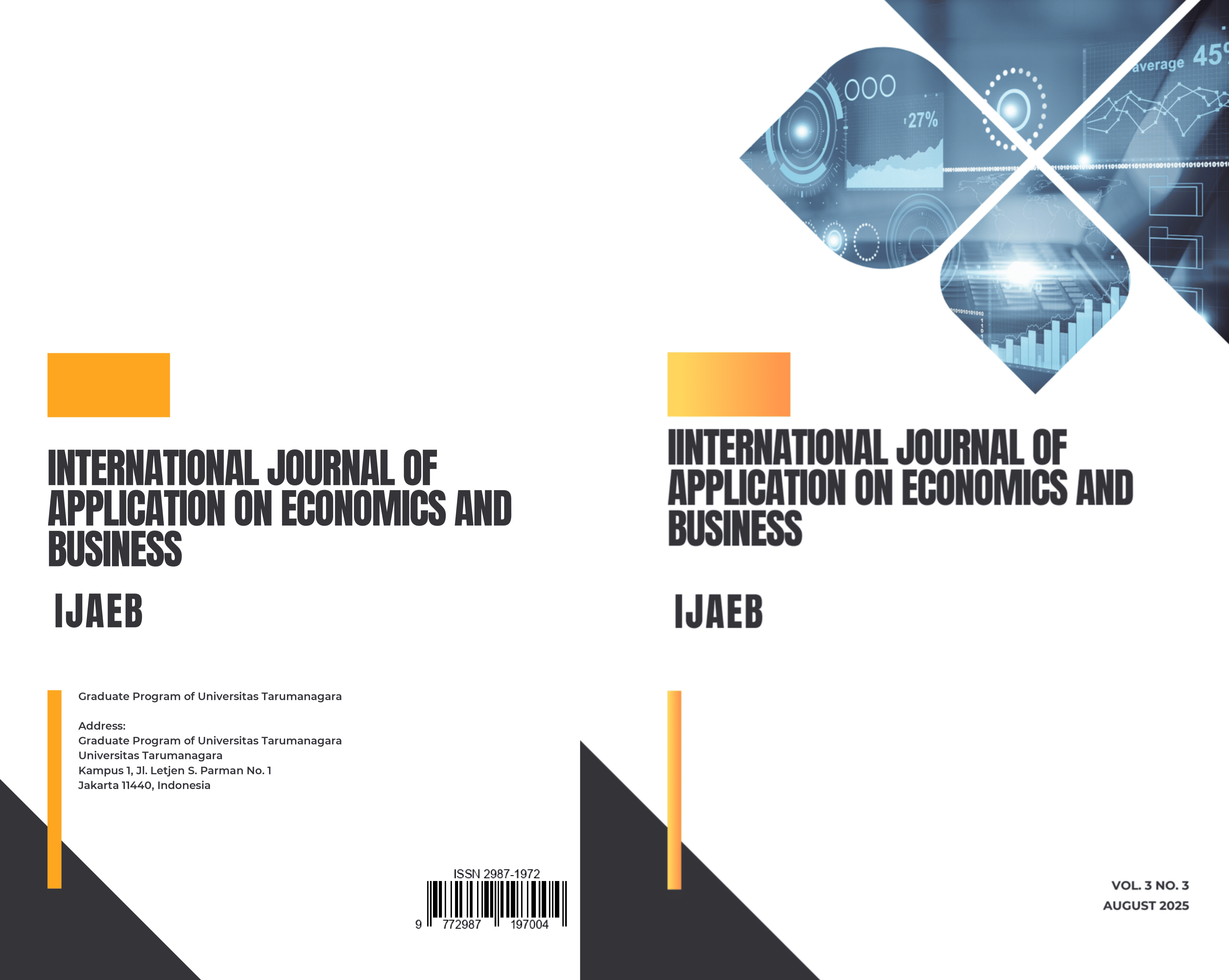IMPACT OF ORGANIZATIONAL LEARNING ON JOB SATISFACTION, COMMITMENT, AND PERFORMANCE OF PRIVATE BANK EMPLOYEES
Main Article Content
Abstract
Employee performance serves as a vital measure in projecting future success within organizations. Key factors that influence this performance include organizational learning, job satisfaction, and employee commitment. This research investigates how organizational learning affects job satisfaction, organizational commitment, and employee performance, alongside the impact of job satisfaction and organizational commitment on performance outcomes. A quantitative method was applied through non-probability sampling, specifically convenience sampling. Primary data were obtained via an online survey involving 105 private bank employees in Tangerang, and analyzed using SmartPLS 4. The findings reveal that all proposed variables significantly and positively influence employee performance. Moreover, both job satisfaction and organizational commitment are proven to partially mediate the relationship between organizational learning and employee performance.
Article Details
Section

This work is licensed under a Creative Commons Attribution-NonCommercial-ShareAlike 4.0 International License.
This journal provides immediate open access to its content on the principle that making research freely available to the public supports a greater global exchange of knowledge.
IJAEB by Graduate Program of Universitas Tarumanagara is licensed under a Creative Commons Attribution-NonCommercial-ShareAlike 4.0 International License.. Permissions beyond the scope of this license may be available at https://journal.untar.ac.id/index.php/ijaeb
References
Arthur, J. B., & Smith, G. P. (2001). The relationship between organizational learning and performance. Journal of Business Research, 54(4), 45-59.
Bougie, R., & Sekaran, U. (2020). Research methods for business: A skill-building approach (8th ed.). Wiley.
Chang, S., & Lee, M. (2007). A study on relationship among leadership, organizational culture, the operation of learning organization and employees’ job satisfaction. The Learning Organization, 14(2), 155-185.
Correa, R., Kim, T., & Morales, A. (2007). Organizational learning and its impact on organizational performance. Journal of Business Research, 60(5), 56-62.
Dunnette, M. D. (2020). Human resource management and employee performance. Harper & Row.
Ellinger, A. D., Ellinger, A. E., Yang, B., & Howton, S. W. (2002). The relationship between the learning organization concept and firms' financial performance: An empirical assessment. Human Resource Development Quarterly, 13(1), 5-22.
Ghozali, I., & Latan, H. (2015). Partial Least Squares: Concepts, techniques, and applications using SmartPLS 3.0 for empirical research. Semarang: Diponegoro University Press.
Griffin, R. W., & Moorhead, G. (2013). Organizational behavior: Managing people and organizations. Cengage Learning.
Hair, J. F., Hult, G. T. M., Ringle, C. M., & Sarstedt, M. (2021). A primer on partial least squares structural equation modeling (PLS-SEM). SAGE Publications.
Koesmono, T. H. (2016). Pengaruh budaya organisasi terhadap kinerja karyawan dan kepuasan kerja. Jurnal Manajemen Sumber Daya Manusia, 10(2), 30-40.
Kreitner, R., & Kinicki, A. (2019). Organizational behavior. McGraw-Hill Education.
Lemmetyinen, A., & Go, F. (2009). The key capabilities required for managing tourism knowledge: An organizational learning approach. Tourism Management, 30(4), 584-594.
Mowday, R. T., Porter, L. W., & Steers, R. M. (2013). Employee–organization linkages: The psychology of commitment, absenteeism, and turnover. Academic Press.
Petty, M. M., McGee, G. W., & Cavender, J. W. (1984). A meta-analysis of the relationships between individual job satisfaction and individual performance. Academy of Management Review, 9(4), 712-721.
Pawirosumarto, S., Sarjana, P. K., & Gunawan, R. (2017). The effect of work environment, leadership style, and organizational culture towards job satisfaction and its implication towards employee performance in Parador Hotels and Resorts, Indonesia. International Journal of Law and Management, 59(6), 1337-1358.Rashid, M. Z. A., Sambasivan, M., & Johari, J. (2003). The influence of corporate culture and organizational commitment on performance. Journal of Management Development, 22(8), 708-728.
Rose, R. C., Kumar, N., & Pak, O. G. (2009). The effect of organizational learning on organizational commitment, job satisfaction and work performance. Journal of Applied Business Research, 25(6), 55-66.
Schultz, D. P., & Schultz, S. E. (2015). Psychology and work today: An introduction to industrial and organizational psychology. Pearson.
Spector, P. E. (1997). Job satisfaction: Application, assessment, causes, and consequences. SAGE Publications.
Usefi, A., Rad, A. A., & Saeedi, M. (2013). The effect of organizational learning on organizational commitment: Case study on Tehran hospitals. Management Science Letters, 3(12), 3085-3090.
Watkins, K. E., & Marsick, V. J. (2003). Summing up: Demonstrating the value of the informal learning in the workplace. Advances in Developing Human Resources, 5(2), 129-132.

